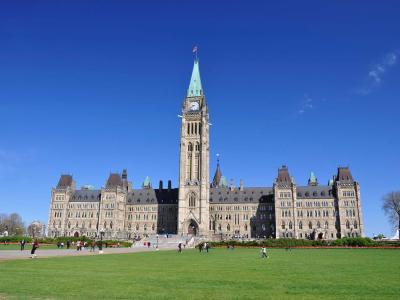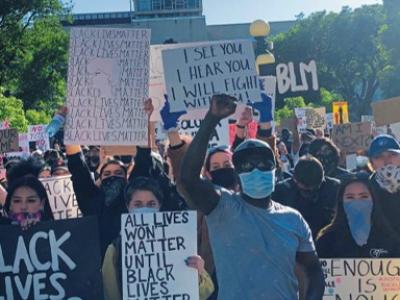With a trade war imminent and even talk in the air of the U.S. annexing Canada, significant numbers of Manitobans are now avoiding travel south of the 49th parallel and boycotting American-made goods.
A new Probe Research survey finds three-quarters of Manitobans are actively trying to avoid purchasing products made in the U.S., with more than six in 10 indicating they have cancelled vacation plans to the States. This represents a significant jump in the number of people avoiding U.S. travel. In late October, just prior to the US election, slightly fewer than four in 10 Manitobans indicated they were changing their travel plans to avoid the U.S.
Winnipeggers, older Manitobans and those with higher levels of formal education are most likely to essentially boycott U.S. products and travel. Those who support the provincial New Democratic Party (NDP), as well as supporters of the federal Liberals and NDP, are also more likely to avoid spending money on U.S. vacations and products, compared to supporters of the provincial Progressive Conservatives (PCs) and federal Conservative party.
Manitobans are generally confident Premier Wab Kinew can manage U.S. President Donald Trump’s economic policies. However, they have less faith in the abilities of the federal Conservative and Liberal leaders to do so.
Six in 10 are very or somewhat confident in Premier Kinew’s approach, compared to slightly fewer than one-half who express confidence in how federal Conservative leader Pierre Poilievre would handle Trump’s tariffs. A slightly lower proportion of Manitobans are confident in the approach of outgoing Liberal Prime Minister Justin Trudeau.
Not surprisingly, NDP and Liberal supporters are more likely to have confidence in Kinew. But fully one-third of those who prefer the provincial PCs and four in 10 of those who back Poilievre’s federal Conservatives are very or somewhat confident how Kinew and his government are managing the tariff threat.
The Story
The events of the past six weeks have significantly shifted how Manitobans and Canadians feel about the United States. We will be digging deeper into Manitobans’ attitudes on this topic in the coming weeks, but we can already see big changes to Manitobans’ travel plans and buying habits.
In the short term, this likely means more Manitoba snowbirds are choosing Mexico and the Caribbean over Florida, Arizona, Texas or California, as well as more people taking summer road trips within Canada versus nearby states. The high proportion of people actively purchasing Canadian-made products and avoiding their American-made counterparts may significantly alter consumer behaviour and needs if tariffs take effect and remain in place long-term.
The survey results also show Premier Wab Kinew appears to be seizing the moment politically to some degree, as he has demonstrated what his government is doing in the face of this threat to the provincial economy.
Meanwhile, Manitobans do not appear to be fully sold on what a Poilievre Conservative government would do in the face of a trade war. Manitobans also express relatively low confidence in the federal Liberal government’s ability to face down this threat – but attitudes may change once a new Liberal leader is chosen and the country heads into an imminent federal election.
Disclosure Statement
Probe Research is a member of the Canadian Research Insights Council (CRIC) and confirms that this research fully complies with all CRIC Standards including the CRIC Public Opinion Research Standards and Disclosure Requirements. Learn more at: https://www.canadianresearchinsightscouncil.ca/standards/por/
Methodology
Probe Research surveyed a representative sample of 600 adults residing in Manitoba from February 3-6, 2025.
Those who responded to the online survey are members of Probe Research’s proprietary panel, as well as members of another national online panel.
Because an online panel is a non-probability sample, no margin of error can be ascribed. For the purposes of comparison, a probabilistic sample of N=600 Manitoba adults would have a margin of error of ± 4.0 percentage points, 19 times out of 20. The margin of error would also be higher within each of the survey’s population sub-groups.
Minor statistical weighting by age, region, gender and educational attainment was applied to this sample to ensure it properly reflects the known attributes of the province’s population. Probe used SPSS software to conduct the statistical analysis.
The survey questions were designed and paid for by Probe Research.



